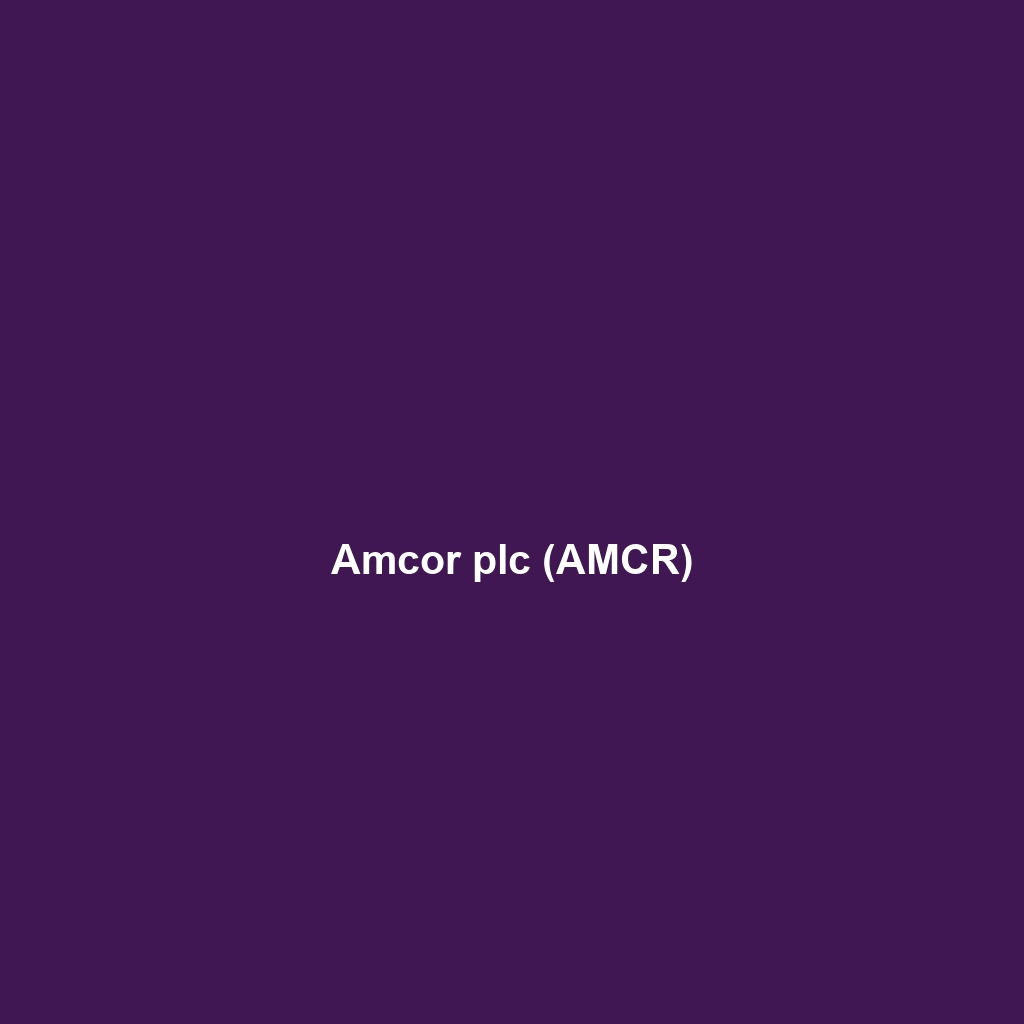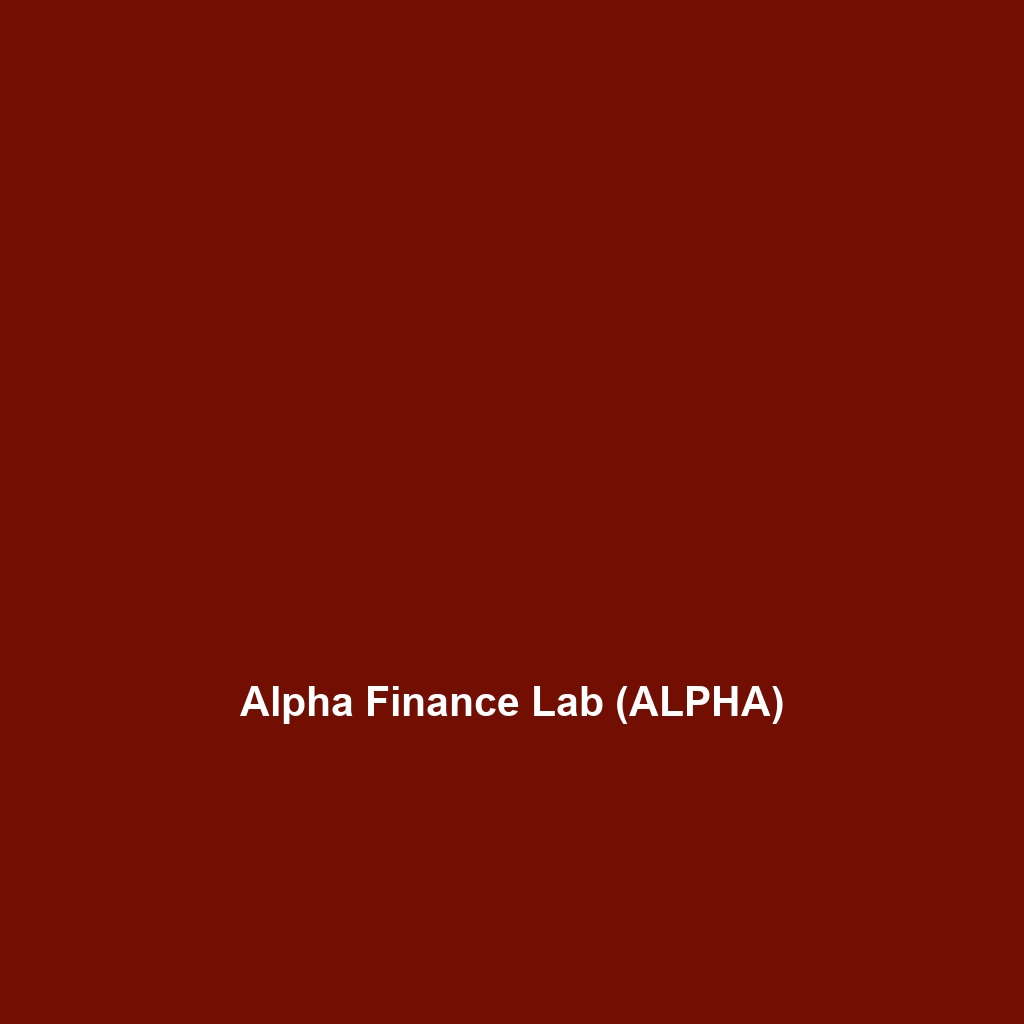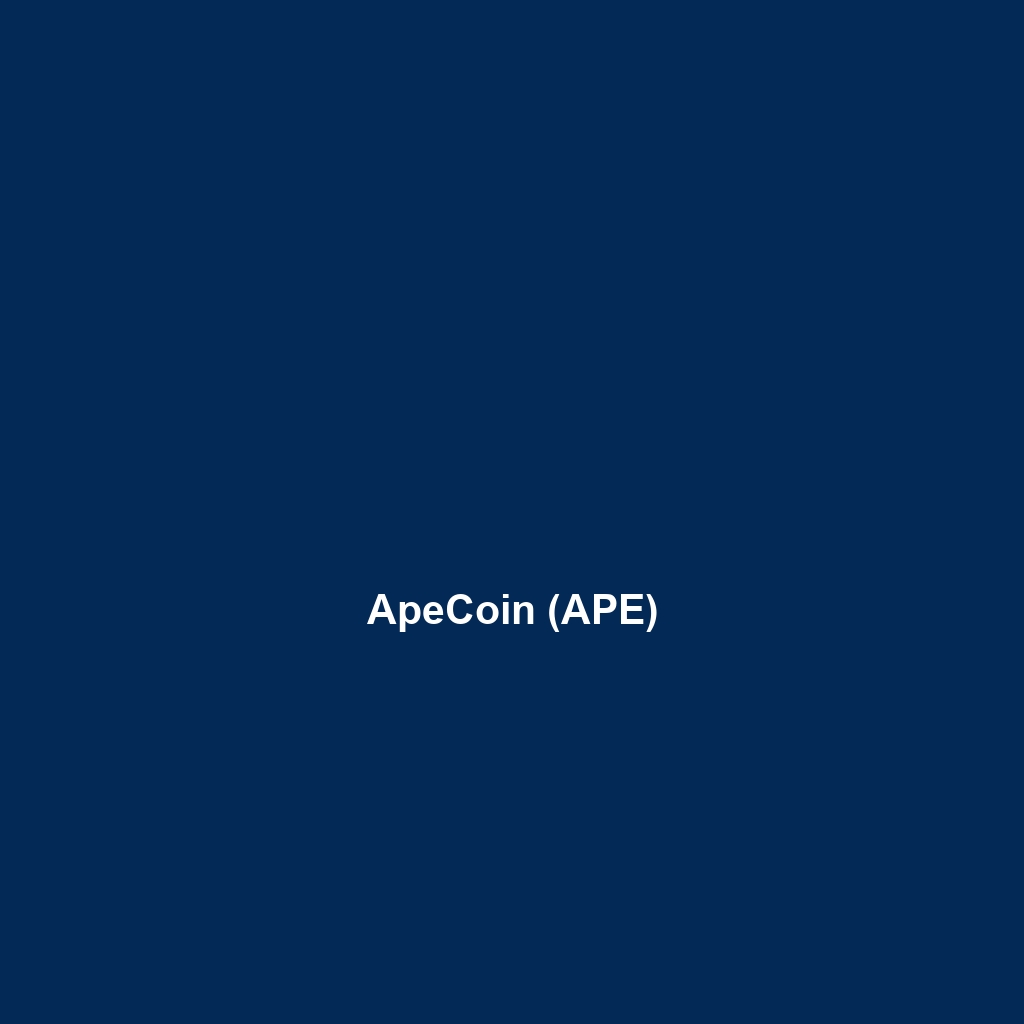Your cart is currently empty!
Tag: Binance

Augur (REP)
Augur (REP): A Comprehensive Overview
Augur (REP) is a decentralized prediction market platform built on the Ethereum blockchain. Designed to enable users to create and bet on real-world events, Augur harnesses the power of blockchain technology to provide transparency, security, and innovative solutions to traditional betting and forecasting systems.
1. Name and Ticker Symbol
The cryptocurrency associated with Augur is known as Augur, with the ticker symbol REP.
2. Founders, Launch Date, and History
Founded by Jack Peterson and Joey Krug in 2014, Augur was one of the earliest projects to create decentralized applications on the Ethereum blockchain. Officially launched in 2019, Augur has undergone several significant upgrades since its inception, including the release of Augur V2 in 2020, which introduced key improvements in usability and market creation.
3. Blockchain Platform
Augur operates on the Ethereum blockchain, functioning as a layer 1 solution. This foundation allows Augur to leverage Ethereum’s robust smart contract capabilities while maintaining decentralization and security.
4. Purpose and Use Case
Augur was created to democratize market predictions by allowing anyone to create and participate in prediction markets. Its primary use cases include real-money betting on sports events, political outcomes, and other forecastable scenarios. Users can also utilize Augur to hedge risks and gain insights into market sentiments.
5. Technology and Consensus Mechanism
The platform employs Ethereum’s Proof of Work consensus mechanism, transitioning to Proof of Stake with Ethereum 2.0 updates. Augur also incorporates an innovative dispute resolution system that incentivizes users to report on outcomes correctly, fostering accurate and trustworthy market data.
6. Supply and Tokenomics
Augur€„¢s total supply is capped at 11 million REP tokens. The circulating supply is subject to change as users stake REP to resolve disputes or provide liquidity. Augur€„¢s tokenomics feature incentives for market creation, staker rewards, and a burn mechanism whereby a portion of the fees accrued is burned to help manage the token’s supply inflations.
7. Use Cases and Adoption
Augur has been adopted for various applications ranging from gambling platforms to market research tools. It enjoys partnerships with organizations such as Gnosis and has seen users create markets for events across sports, finance, and politics.
8. Market Performance and Metrics
As of now, Augur boasts a market capitalization exceeding $150 million, with fluctuating historical price trends influenced by broader crypto market dynamics. Augur’s trading volume shows variability, with peaks occurring during major events and releases. The price of REP has experienced volatility typical in the cryptocurrency space, indicating both risks and opportunities for traders.
9. Where to Buy and Trade
REP tokens can be purchased on multiple exchanges, including Binance, Coinbase, and Uniswap (a leading decentralized exchange). Users can easily trade REP using either centralized exchanges (CEXs) or decentralized exchanges (DEXs) based on their preferences.
10. Security and Risks
While Augur’s decentralized nature reduces risks typical in centralized systems, it is not immune to vulnerabilities. Past incidents include smart contract bugs and phishing attacks. Regulatory risks also loom due to ongoing scrutiny concerning gambling laws and compliance, which, if not addressed, could impact the platform’s operation.
11. Community and Governance
Augur employs a decentralized governance model that allows token holders to participate in decision-making processes concerning platform upgrades and policies. The community actively engages through forums and platforms like Discord, fostering a robust ecosystem of users dedicated to promoting Augur€„¢s adoption.
12. Competitors and Differentiation
Competing platforms include Polymarket and Gnosis, among others. What differentiates Augur is its unique focus on decentralized governance and a community-driven approach, along with pioneering the concept of prediction markets on the blockchain.
13. Roadmap and Future Developments
Augur’s upcoming roadmap includes enhancements to its user interface and functionalities to attract more users. Plans for increased scalability and integrations with other DeFi protocols are in the pipeline, which should expand its user base and improve overall utility.
14. Wallet Compatibility
The REP tokens are compatible with various wallets, including MetaMask, Ledger, and other Ethereum-compatible wallets, making it accessible for users wanting to store or transfer REP securely.
15. Regulatory and Compliance Status
Augur faces ongoing legal scrutiny related to gambling regulations across different jurisdictions. While it operates on a decentralized model, ensuring adherence to legal standards is essential for its continued functionality and user trust.
16. Recent News and Updates
Recently, Augur has made headlines for its partnership with various gaming platforms to enhance market offerings and improve user experience. Upcoming upgrades are also expected to address key user feedback, enhancing transaction speeds and reducing fees.
17. Summary and Call to Action
In summary, Augur (REP) represents a significant innovation in the realm of prediction markets and decentralized finance. As it continues to evolve with the blockchain landscape, its focus on community governance and real-world applications positions it as a noteworthy competitor in the crypto space. For investors and enthusiasts, following Augur’s developments can provide valuable insights and opportunities in the dynamic world of cryptocurrency.
For additional insights, visit UpCube.net. Visit Augur’s official website for more information.

Ambrosus (AMB)
Ambrosus (AMB) – A Comprehensive Overview
Name and Ticker Symbol: Ambrosus is a cryptocurrency that operates under the ticker symbol AMB.
Founders, Launch Date, and History
Ambrosus was co-founded by Angel Versetti and Dr. Stefan Meyer in 2017. The project was initially launched to bridge the gap between blockchain technology and supply chain management, with a particular focus on quality assurance within food and pharmaceuticals. Key milestones for Ambrosus include the successful initial coin offering (ICO) in 2017, which raised approximately $30 million, and continuous partnerships with various enterprises dedicated to enhancing transparency in supply chains.
Blockchain Platform
Ambrosus operates on the Ethereum blockchain, utilizing its smart contract capabilities to facilitate its processes. As an Ethereum-based solution, it benefits from the established integrity and security of a widely recognized blockchain platform. This positions Ambrosus as a layer 1 solution, as it does not layer on top of existing protocols but utilizes its original infrastructure for its transactions and utility.
Purpose and Use Case
The primary purpose of Ambrosus is to create a digital, transparent, and immutable record of supply chain processes, particularly for the food and pharmaceuticals industries. Its use cases include quality assurance, product tracking, and enhancing consumer trust. By utilizing blockchain technology, Ambrosus aims to provide reliable and verifiable information about product origins, transportation, and handling methods.
Technology and Consensus Mechanism
Ambrosus leverages Ethereum€„¢s Proof of Work consensus mechanism, transitioning towards Proof of Stake with Ethereum 2.0’s rollout. This enables a decentralized verification of transactions while ensuring the security and integrity of the blockchain network.
Supply and Tokenomics
The total supply of AMB tokens is set at 1 billion, with a current circulating supply around 600 million. The tokenomics include provisions for staking rewards, providing holders with incentives for participating in network security and governance. Currently, there are no established burn mechanisms, but the governance structure is designed to adapt and implement community-driven proposals efficiently.
Use Cases and Adoption
Ambrosus has formed partnerships with various companies focusing on improving supply chain transparency. Notable real-world applications include collaborations with agricultural producers, pharmacies, and logistics firms that utilize the platform to trace products through their lifecycle.
Market Performance and Metrics
The current market capitalization of Ambrosus (AMB) is approximately $30 million. Historical price trends have shown significant volatility, with peaks correlating with broader market trends and adoption metrics. The trading volume has varied, but Ambrosus continues to gain traction within the decentralized finance (DeFi) space.
Where to Buy and Trade
AMB tokens can be traded on several major cryptocurrency exchanges, including Binance, Bittrex, and KuCoin. For decentralized exchange (DEX) enthusiasts, AMB is also available on Uniswap and other popular DEX platforms, providing various liquidity options for traders.
Security and Risks
While Ambrosus has not experienced significant hacks, potential vulnerabilities exist, especially concerning smart contract exploits and regulatory compliance. Users are encouraged to take necessary precautions when trading, including using reputable exchanges and wallets.
Community and Governance
Ambrosus employs a community-driven governance model, allowing token holders to participate in decisions related to network upgrades and project direction. This encourages engagement and aligns community interests with the long-term development of the cryptocurrency.
Competitors and Differentiation
Ambrosus faces competition from other blockchain supply chain solutions such as VeChain and OriginTrail. However, its unique positioning centers around the focus on food and pharmaceutical industries, enhanced transparency, and consumer trust through rigorous verification processes.
Roadmap and Future Developments
Looking ahead, Ambrosus has an ambitious roadmap that includes enhancing its technical capabilities with further smart contract features, partnerships with more industries, and expanding its global outreach through new collaborations. Community-driven initiatives to adapt and evolve the AMB token’s utility are also expected.
Wallet Compatibility
AMB tokens are supported by various wallets including MetaMask, Ledger, and other ERC-20 compatible wallets, allowing for safe storage and easy management of tokens.
Regulatory and Compliance Status
Ambrosus maintains active dialogue regarding regulatory compliance, particularly in light of global variations in cryptocurrency laws. Understanding and adapting to these regulations is essential for its continued operations and partnerships.
Recent News and Updates
Recently, Ambrosus announced strategic partnerships aimed at expanding its reach in the food safety sector. Innovations in the platform also focus on improving user experience and engagement through enhanced smart contract features.
Summary and Call to Action
Ambrosus (AMB) is a cryptocurrency worthy of attention due to its innovative approach to enhancing transparency and trust within supply chains, especially in the food and pharmaceuticals sector. Its solid technological foundation, community involvement, and transparent governance model make it a prominent project in the crypto landscape. For those interested in the future of blockchain technology and its applications, following Ambrosus could prove beneficial.
For additional insights, visit UpCube.net. Also, explore further through Ambrosus€„¢ official website.

Alpha Finance Lab (ALPHA)
Alpha Finance Lab (ALPHA): A Comprehensive Overview
Alpha Finance Lab (ALPHA) is a revolutionary cryptocurrency that plays a crucial role in the decentralized finance (DeFi) ecosystem. With its innovative approach and robust underlying technology, ALPHA has emerged as a key player in the evolving world of blockchain applications.
Founders, Launch Date, and History
Alpha Finance Lab was founded by a team of experienced professionals including Yahya Ghaffar, Tuan Anh Nguyen, and other co-founders. The cryptocurrency was launched in 2020, marking a significant milestone in the DeFi sector. Alpha Finance Lab has achieved several key milestones, including the successful launch of its flagship products such as Alpha Homora and Alpha Vaults, which have garnered substantial traction within the DeFi community.
Blockchain Platform
ALPHA operates on the Ethereum blockchain, which is widely recognized for its smart contract functionality. Ethereum serves as a layer 1 solution, providing a robust framework for various decentralized applications (dApps) while enabling the seamless integration of Alpha Finance Lab€„¢s DeFi products.
Purpose and Use Case
The primary purpose of Alpha Finance Lab is to create a suite of DeFi products that enhance the experience for users in yield farming, lending, and liquidity provision. Key use cases of ALPHA include its role in providing leveraged yield farming through Alpha Homora, allowing users to maximize their returns while minimizing investment risks.
Technology and Consensus Mechanism
Alpha Finance Lab leverages cutting-edge blockchain technology to deliver its services. The platform operates on a consensus mechanism known as Proof of Stake (PoS), which enhances security and facilitates efficient transaction processing, further boosting the overall efficiency of the network.
Supply and Tokenomics
ALPHA has a max supply of 1 billion tokens. As of now, the circulating supply stands at approximately 200 million tokens, with a specific allocation for staking rewards that incentivize users to hold and stake their tokens. The protocol includes a burn mechanism, designed to reduce overall supply over time, thereby potentially increasing the value of each token.
Use Cases and Adoption
Some real-world applications of ALPHA include partnerships with various DeFi projects and exchanges that leverage ALPHA for liquidity and governance. Notable partnerships have included integrations with platforms like Curve Finance and Yearn.finance, enhancing user access and creating new avenues for liquidity provision and investment opportunities.
Market Performance and Metrics
As of October 2023, ALPHA€„¢s market cap stands at approximately $300 million, with a trading volume exceeding $50 million daily. Historical price trends indicate significant volatility typical of the cryptocurrency market, but ALPHA has shown resilience in its price performance, attracting steady user interest and investments.
Where to Buy and Trade
ALPHA can be traded across various exchanges, including major centralized exchanges (CEXs) like Binance and Huobi, as well as decentralized exchanges (DEXs) such as Uniswap and SushiSwap. These platforms facilitate easy access for traders looking to invest in ALPHA.
Security and Risks
While Alpha Finance Lab has implemented robust security measures, like many cryptocurrencies, it is not immune to risks. Security vulnerabilities exist, and the project has faced scrutiny due to incidents in the broader DeFi landscape. Nevertheless, the team has continually worked to address potential security flaws and enhance platform safety, emphasizing legal compliance during its operations.
Community and Governance
ALPHA employs a decentralized governance model that allows community members to participate in decision-making processes. Through a governance token model, holders of ALPHA can vote on proposals, influencing the future direction of the platform. Active community engagement through various social media platforms helps sustain user loyalty and support for upcoming projects.
Competitors and Differentiation
In an increasingly competitive landscape, Alpha Finance Lab distinguishes itself from other DeFi projects like Yearn.finance and Compound by offering unique features such as leveraged yield farming and a focus on enhancing user accessibility to various DeFi services. Its innovative approach has garnered a loyal user base, enhancing its competitive edge in the market.
Roadmap and Future Developments
The Alpha Finance Lab team has laid out an extensive roadmap focused on upcoming developments including the launch of advanced financial products, enhanced user interfaces, and strategic partnerships with larger DeFi ecosystems. Noteworthy updates are expected in the coming quarters, further solidifying ALPHA€„¢s position in the blockchain space.
Wallet Compatibility
ALPHA is compatible with several leading cryptocurrency wallets, including MetaMask, Ledger, and Trust Wallet. This compatibility ensures users can securely store and manage their tokens while participating in the DeFi ecosystem.
Regulatory and Compliance Status
As regulatory scrutiny in the cryptocurrency sphere increases, Alpha Finance Lab has taken steps to remain compliant with applicable laws. The project actively monitors regulatory changes and adjusts its operations accordingly to mitigate potential legal risks and ensure long-term viability.
Recent News and Updates
Recent developments for Alpha Finance Lab include significant partnerships aimed at expanding its product offerings, as well as upgrades to existing services to improve user experience. The project continuously seeks opportunities to grow its ecosystem and enhance liquidity.
Summary and Call to Action
Alpha Finance Lab (ALPHA) stands out as an innovative cryptocurrency within the DeFi space, offering unique products and a committed community. Its blend of advantageous tokenomics, proactive governance, and a clear roadmap makes it a compelling project to follow. For investors and enthusiasts alike, staying updated on ALPHA’s developments could prove beneficial.
For additional insights, visit UpCube.net. To learn more about Alpha Finance Lab, explore its official website or whitepaper.

Akash Network (AKT)
Akash Network (AKT): A Comprehensive Overview
Akash Network (AKT) stands out in the rapidly evolving blockchain landscape, providing decentralized cloud computing solutions that cater to developers and businesses. This article delves into various facets of Akash Network, offering an in-depth look at its inception, technology, market performance, and future direction.
1. Name and Ticker Symbol
Akash Network operates under the ticker symbol AKT, representing its unique identity within the cryptocurrency ecosystem. As a cryptocurrency, AKT facilitates payments and transactions within the Akash platform.
2. Founders, Launch Date, and History
Founded by Gregory B. K. Kitheran, Nick White, and others, Akash Network was officially launched in 2020. The project gained traction with its focus on providing a decentralized marketplace for computing power, marking key milestones such as significant partnerships and integrations with platforms that prioritize cloud solutions in the decentralized realm.
3. Blockchain Platform
Akash Network operates on its own blockchain, which is not a layer 1 or layer 2 solution but rather functions as an independent protocol tailored for cloud services. This innovative approach allows Akash to maximize efficiency while benefiting from the robust capabilities of blockchain technology.
4. Purpose and Use Case
The primary purpose of Akash Network is to create a decentralized cloud computing platform that allows users to deploy applications and services effortlessly. Its main use cases include:
- Decentralized cloud hosting for applications and services
- Reducing infrastructure costs for developers
- Facilitating easy access to computing resources for businesses
5. Technology and Consensus Mechanism
Akash Network utilizes a technology stack that combines various open-source software solutions while implementing the Proof of Stake (PoS) consensus mechanism. This ensures energy-efficient operations and scalability, enabling a secure and reliable marketplace for cloud services.
6. Supply and Tokenomics
Akash Network’s tokenomics is structured with a maximum supply of 388 million AKT tokens. Currently, the circulating supply is approximately 330 million. The platform provides staking rewards for participants, which are crucial for maintaining network security and governance. Although Akash has not instituted a burn mechanism, its economic model encourages active participation from the community, fostering growth.
7. Use Cases and Adoption
Real-world applications of Akash Network are emerging rapidly. Notable partnerships with Cloudflare and other tech entities have paved the way for increasing adoption. Use cases span across various industries including:
- Decentralized finance (DeFi)
- Artificial intelligence and machine learning applications
- Gaming and web hosting solutions
8. Market Performance and Metrics
Akash Network has shown significant market presence, with a market cap that fluctuates typically around $200 million, depending on market dynamics. Historical price trends indicate periods of volatility, common in the cryptocurrency market, but with increasing stability as adoption grows. Trading volume frequently exceeds $10 million in daily transactions, reflecting active engagement in crypto trading.
9. Where to Buy and Trade
Investors can buy and trade AKT on several notable exchanges including:
- Binance
- KuCoin
- Uniswap (DEX)
This accessibility promotes wider market participation and enhances liquidity.
10. Security and Risks
While Akash Network has prioritized security, the landscape of decentralized platforms isn’t immune to vulnerabilities. Past incidents in the broader crypto space highlight risks. Regulatory scrutiny and market volatility remain concerns for investors and stakeholders.
11. Community and Governance
Akash Network’s governance model embraces community engagement through a decentralized autonomous organization (DAO) structure, allowing stakeholders to influence platform decisions. This promotes transparency, accountability, and collaborative growth, ensuring that the community’s voice is heard.
12. Competitors and Differentiation
When compared to competitors like Amazon Web Services and Google Cloud, Akash Network offers a unique edge by providing a decentralized alternative that eliminates centralized control and reduces costs significantly. Its emphasis on user autonomy and cost-effectiveness distinguishes it within the cloud computing market.
13. Roadmap and Future Developments
Looking ahead, Akash Network has outlined several initiatives in its roadmap, such as:
- Expanding partnerships with additional cloud service providers
- Enhancing platform features to support more complex applications
- Increased marketing efforts aimed at broader user adoption
14. Wallet Compatibility
Akash Network’s AKT token is compatible with various wallets including MetaMask, Ledger, and the native Akash Wallet. These options ensure users can store and manage their tokens securely.
15. Regulatory and Compliance Status
In terms of regulatory status, Akash Network is navigating the complexities surrounding cryptocurrency compliance. Although it is currently operational without major legal challenges, ongoing vigilance is necessary to address future regulatory risks.
16. Recent News and Updates
Recent developments for Akash Network include partnerships aimed at improving its infrastructure and service offerings. Additionally, the community is excited about upcoming feature releases, making it a project to watch closely.
17. Summary and Call to Action
In summary, Akash Network (AKT) represents a promising player in the cryptocurrency and decentralized cloud computing sector. With its innovative technology, active community engagement, and robust market performance, it has positioned itself as an attractive option for both users and investors alike. With ongoing developments and strategic partnerships on the horizon, Akash Network is indeed worth following.
For additional insights, visit UpCube.net. To learn more about Akash Network, explore its UpCube.net. Also, explore more details on Gamium’s UpCube.net. For more information, check out the
Next Page


